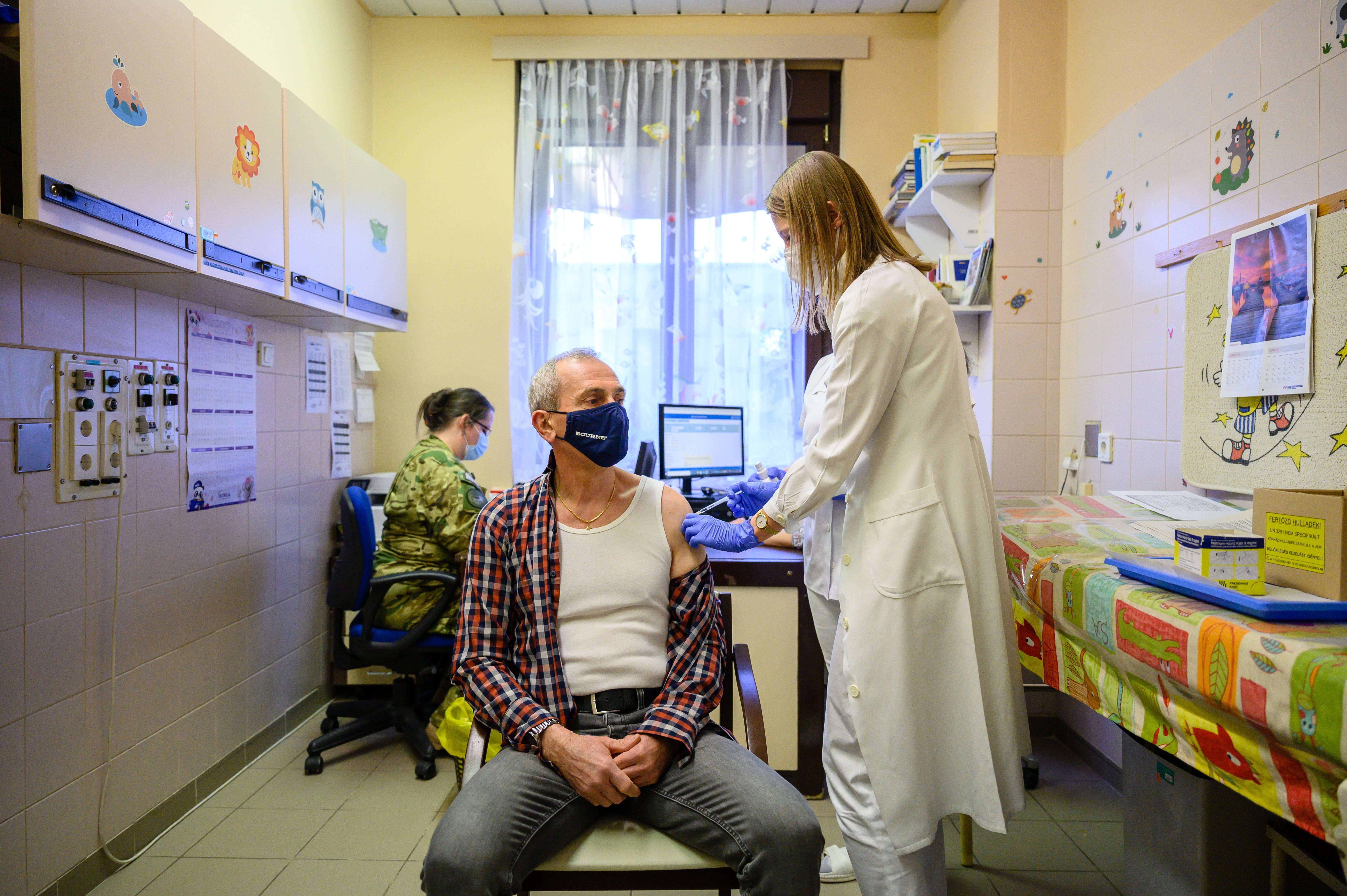KDNP committee chair accuses independent MP of working on behalf of "clandestine power"
- Stay updated on the latest news from Hungary by signing up for the free InsightHungary newsletter:
During comments in a parliamentary committee meeting on Wednesday, a sitting member of parliament with the governing coalition accused an independent MP of acting on behalf of a "clandestine power" in her efforts to extend a moratorium on evictions.
At the meeting of the parliamentary Justice Committee, independent MPs Bernadett Szél, Ákos Hadházy and Szabolcs Szabó submitted a draft proposal on reducing the salaries of all MPs to the minimum amount provided by law (three times the gross national average) until the end of the state of emergency. The proposal recommends that MPs donate the remainder of their salaries (and any other additional income provided to caucus leaders, committee members, etc.) to a pandemic defense fund for increasing the salaries of healthcare staff and workers in elderly care homes.
The proposal was voted down by committee members from the Fidesz-KDNP governing coalition, Szél wrote on Facebook, adding that MPs are set to receive a salary increase on April 1 "that Fidesz voted for but we didn't."
The three independent MPs also submitted a draft proposal that would put an indefinite moratorium on all evictions, and suspend real estate auctions of repossessed properties and the garnering of wages from debtors until the end of the year in light of the economic crisis caused by the pandemic.
"You see before you Bernadett Szél from the opposition, but I see people who are hoping that they will be able to stay in their homes after the expiration of the moratorium on evictions," Szél said in comments to the committee. "And these aren't fancy homes, not the kind that your oligarchs live in. These are very modest homes."
In response, committee chair Imre Vejkey (KDNP) suggested that Szél was acting on behalf of an unspecified hidden power.
"The situation, representative, is that we don't only see you, but we also see the clandestine power on whose behalf you are speaking," Vejkey said.
The proposal's co-sponsor, Ákos Hadházy, approached the chairman's dais and asked "what kind of clandestine power stands behind Bernadett Szél," but Vejkey told Hadházy to "end his provocation," then smiled and left the chamber.
The proposal to extend the moratorium on evictions was voted down by the committee's Fidesz-KDNP majority.
Belgian TV captures arrest of MEP József Szájer as he fled Brussels sex party
Footage was released online Wednesday of the arrest of former Fidesz MEP József Szájer as he fled an illegal sex party in Brussels in late November, but the footage was later removed from the web reportedly by order of the Belgian prosecutor's office.
The footage was taken by a television crew that was following Brussels police as part of a series documenting law enforcement, and featured Szájer, with his face blurred out, surrounded by several police officers with his hands placed against a wall. A bystander told police he had seen Szájer emerge from a fifth-story window and scale down a drainpipe to the street, where he attempted to flee the scene.
As we reported last year, Szájer had attended a sex party attended by 25 men in violation of Belgium's pandemic rules limiting gatherings. Police detained him as he attempted to flee, and reportedly found drugs in his backpack which he claimed did not belong to him. Days later, he resigned his mandate in the European Parliament and later left the Fidesz party.
By Wednesday evening, the video of Szájer's arrest had been removed from the internet. Euronews reports that the Belgian prosecutor's office ordered its removal since Szájer's name appeared in the recording, violating statutes on the protection of personal information. A version of the video with Szájer's name removed will reportedly be released soon.
In a statement on his website Wednesday, Szájer wrote that Belgium's prosecutor's office had closed the case against him, and that he had paid €250 for breaching Belgium's Covid-19 rules. Charges were not filed against him for possession of drugs.
Szájer also reflected on his 30-year political career, writing that had "pursued the common cause of my nation" and "was always ready to defend my country without compromise against the mean, hate-filled, hungarophobic attacks."
"During my thirty years of political career (sic) I never made any homophobic utterances," Szájer wrote.
Szájer was a founding member of Fidesz and one of the chief architects of Hungary's new constitution adopted by the party's supermajority in 2011. He claimed to have written much of the document on an iPad. The constitution included new passages that define marriage as between a man and a woman.
Critics of the constitution said it enshrined Fidesz's conservative Christian worldview into Hungary's laws, and made references in its preamble to the "nation-preserving role of Christianity" and the protection of Hungary's Christian culture.
Fidesz leaves EPP with hopes of finding a new right-wing coalition
Fidesz last Thursday announced it was leaving the European People's Party, its center-right political family on the European stage, following years of tensions over Hungary's record of upholding democratic standards.
In a tweet, minster for family affairs and Fidesz vice-president Katalin Novák announced the party's departure, and included a letter to the secretary general of the EPP declaring that Fidesz "no longer wishes to maintain its membership in the European People’s Party.”
“It’s time to say goodbye,” she wrote in the tweet.
Fidesz's membership in the political family has been suspended since March 2019, and statements from EPP leaders indicated that the party was likely to be voted out as soon as pandemic conditions allowed for an in-person meeting.
Three weeks ago, Fidesz pulled itself out of the EPP's caucus in the European Parliament minutes after the EPP Group passed changes to procedural rules that allowed for entire parties, rather than individual lawmakers, to be expelled from the Group with a two-thirds vote, paving the way for Fidesz's expulsion which was supported by many EPP lawmakers.
In a weekly radio interview on Friday, Prime Minister Viktor Orbán confirmed that he is in talks with Polish prime minister Mateusz Morawiecki and Italy's former interior minister Matteo Salvini on "reorganizing the European right wing." It remains unclear whether Fidesz could join the Eurosceptic caucus European Conservatives and Reformists (ECR), of which Morawiecki's governing Law and Justice (PiS) is a member, or will seek to create a new right-wing political force in the European Parliament.
Chinese and Indian vaccines receive emergency use approval
Hungary's medicines regulator has approved two new vaccines for emergency use in Hungary, both of which come from outside the European Union's common procurement program.
Chief Medical Officer Cecília Müller announced at an online press briefing Monday that the National Institute of Pharmacy and Nutrition (OGYÉI) had issued approval to Convidecia, a vaccine developed by Chinese company CanSino Biologics, and to Covishield, a version of the AstraZeneca vaccine produced in India.
The approval of the two jabs brings the total number of approved vaccines to seven, including three from procurements negotiated by the EU and four others pursued independently by Hungary' government. CanSino is the second Chinese jab to be approved in Hungary after the Sinopharm vaccine was approved in late January. Russia's Sputnik V is also in use.
The Ministry of Foreign and Affairs and trade on Wednesday told ATV that "several million" doses of the two vaccines could soon arrive in Hungary.
"Negotiations are still underway on the procurement and contracts have not yet been signed, but another several million vaccine [doses] could arrive in Hungary in a couple of weeks according to our plans," the ministry wrote.
More than 1.7 million people have received at least a first dose of a vaccine in Hungary so far, giving it the second highest vaccination rate in the EU after Malta. But the high number of vaccinations has been unable to slow the rapid spread of a coronavirus variant first discovered in the United Kingdom, which has repeatedly broken records in the numbers of daily cases, deaths and hospitalizations.
A record 272 people died of coronavirus-related causes on Thursday, the highest daily total since the beginning of the pandemic. Hungary now has the highest per capita death rate in the world, according to data from Johns Hopkins University. The per capita number of those hospitalized with Covid-19 is also the highest anywhere in Europe or North America with the possible exception of Bulgaria.
Five times more money went to sports than to healthcare in pandemic's first year
Since March 2020, the government allocated five times as much money to sports and twice as much to churches as was allocated to Hungary's healthcare system, according to calculations by economics website mfor.hu.
In the year following the declaration of a state of emergency on March 20, 2020, the government allocated:
- HUF 288.6 billion to sport-related expenditures
- HUF 153.6 billion to ""central budget contributions for churches"
- and HUF 60.7 billion to the healthcare system for "treatment and prevention"
Of the HUF 288.6 billion spent on sports:
- 151.1 billion went to developing sports facilities
- 21.8 billion to financial assistance to sports academies
- 17.3 billion to supporting competitive sports
- 11 billion to the National Sports Center
- and 15.7 billion to "concepts and strategies for sport sector development."




